Something a little different today, as I make my debut on YouTube. Shawn the Book Maniac is a Canadian BookTuber based in Tokyo. He has an ongoing series called Bite-sized Book Chats, where he invites different people to talk about a book they’ve enjoyed. Shawn kindly invited me to take part earlier this year, and I chose my favourite book of 2021, Paul Griffiths’ The Tomb Guardians. You can see my chat with Shawn as part of the latest episode below.
Category: Griffiths Paul
My favourite books read in 2021
Here we are again, approaching the end of another year. As usual, I’ve picked out my twelve favourite books that I read in 2021, regardless of when they were first published. I always find that doing this provides me with an interesting snapshot of my reading year as a whole. This year’s snapshot has given me cause to reflect – but more on that in another post. For now, here are my reading highlights of 2021:
12. Angélique Villeneuve, Winter Flowers (2014)
Translated from French by Adriana Hunter (2021)
A novel set in the aftermath of World War One, in which a woman tries to rebuild her relationship with her disfigured husband, while the community around comes to terms with its own traumas. Winter Flowers is one of those books that cuts through preconceived notions about its subject matter to capture raw feeling.
11. Judith Bryan, Bernard and the Cloth Monkey (1998)
If it hadn’t been for the ‘Black Britain: Writing Back‘ series curated by Bernardine Evaristo, I might never have come across Bernard and the Cloth Monkey. I’m so glad I did. This tale of a young woman returning to her family home constantly shifts in register, creating a kaleidoscope of emotion in a seemingly ordinary setting.
10. Adam Mars-Jones, Batlava Lake (2021)
I like stories that are shaped by a strong narrative voice, and that’s very much the case with Batlava Lake. Mars-Jones introduces us to Barry, a matey, chatty engineer who’s really not equipped to convey the brutality of war in Kosovo. But that very inadequacy is what makes the book work so well.
9. Andrew Komarnyckyj, Ezra Slef, the Next Nobel Laureate in Literature (2021)
Of all the books I read in 2021, I think this was probably the most fun. It’s a spoof literary biography whose purported author talks more about himself than his subject, and deals with a Twitter troll by (inadvertently) making a deal with the Devil. Just thinking back to reading Ezra Slef makes me smile.
8. Rebecca Watson, little scratch (2021)
little scratch was the least conventionally written novel that I read all year, with its words scattered in different patterns across the page. Those words are the thoughts of a young woman going about her day while something plays on her mind. It’s a technique that really brought me close to the narrator and the tension that grows throughout the book.
7. Ivana Dobrakovová, Bellevue (2009)
Translated from Slovak by Julia and Peter Sherwood (2019)
This book was probably my biggest surprise of the reading year, in that I wasn’t prepared for the way it turns, so subtly and effectively. Its protagonist takes a summer job working with disabled people, but struggles to cope. Her mental health is affected, which we see entirely through changes in the shape of her narration – which is what makes the effect so powerful.
6. Natasha Brown, Assembly (2021)
More shapeshifting prose here, but in this case the protagonist is finding her voice. A Black British woman working in the banking industry reflects on her situation, and asks herself how she really wants to be. The prose is constantly changing to match her thoughts as she assembles the pieces of her life, building to a crescendo for narrator and reader alike.
5. Isabel Waidner, Sterling Karat Gold (2021)
A worthy winner of the Goldsmiths Prize, this novel strikes me as a carnival – in the sense of both an entertainment and a festival challenging social structures. Sterling and their friends face a nightmarish authoritarian world that works against them in ways they don’t understand. There are matadors, showtrials, time-travelling spaceships – and hope to be found in pushing back.
4. Federico Falco, A Perfect Cemetery (2016)
Translated from Spanish by Jennifer Croft (2021)
I love story collections that work as a whole, and this one certainly does. Falco’s protagonists are all facing pivotal moments of change in their lives, and his stories are suitably dynamic. There’s a great sense of place and character about these tales, and each one opens out memorably as it ends.
3. Claudia Piñeiro, Elena Knows (2007)
Translated from Spanish by Frances Riddle (2021)
Elena has Parkinsons, and this novel is structured around the ebb and flow of her energy levels. She’s forced to confront the limits of her knowledge about her daughter, which reflects the limits of what she can do during the day. With so many of the books on my list, the language brought me right into the protagonist’s world – perhaps none more so than Elena Knows.
2. Jon McGregor, Lean Fall Stand (2021)
I was intrigued at the prospect of a Jon McGregor novel set partly in the Antarctic. In the end, I experienced Lean Fall Stand as viscerally as any of his others. A polar guide tries to rebuild his life and self after a stroke. McGregor explores how language breaks down and re-forms around this event, in a dizzying rush of a novel.
1. Paul Griffiths, The Tomb Guardians (2021)
The single most powerful reading experience I had in 2021 was this slim novel interweaving conversations between the guardians of Christ’s tomb and a present-day lecturer examining 16th-century depictions of them. The book hovers on the knife-edge of uncertainty, and rivals Convenience Store Woman for the sudden power of its ending. This is why I’m reading fiction in the first place.
***
There we go. I hope you’ve found some books in 2021 that you enjoyed as much as I did these. If you’d like to see my selections from previous years, you can find them here: 2020, 2019, 2018, 2017, 2016, 2015, 2014, 2013, 2012, 2011, 2010, and 2009. As ever, thank you for reading, and I’ll see you next year – you can also catch me on Twitter, Instagram and Facebook.
Henningham Family Press: The Tomb Guardians by Paul Griffiths
Henningham Family Press and Paul Griffiths were two of my favourite discoveries last year, and now here’s another beautifully produced book by the author of Mr. Beethoven. I was looking forward to The Tomb Guardians, but even so I wasn’t prepared for it.
When I look at my most favourite novels, it’s not about subject matter or subgenre – it’s about the reaction I have to reading them. The writing somehow bypasses the rational brain and affects me at a more fundamental level. The Tomb Guardians is that sort of novel.
Two conversations intertwine within the book. The first (in italics) is between the guardians of Christ’s tomb. They’ve woken up to find that the stone has been moved, the tomb is empty, and one of their number has also vanished. The guardians can’t work out exactly how all this happened, but they know they can’t admit to having been asleep. They have to concoct a plausible explanation that won’t land them in trouble.
In the present day, a lecturer is preparing a talk on the ‘sleeping grave guard’ paintings by the 16th-century German artist Bernhard Strigel [example], which are reproduced in the book as colour plates). The lecturer feels the talk is “falling apart”, and discusses it with a friend. The key question occupying the lecturer is: why doesn’t Strigel’s placid depiction of the guards reflect the Gospel of Matthew? The lecturer has some ideas about this: what if the figures are meant to reflect Strigel’s contemporary reality rather than the biblical one? What if they’re not meant to be the guardians of Christ’s tomb at all?
Both conversations then revolve around a fundamental absence of knowledge, though approached from opposite directions. The guardians are constructing a falsehood to explain away the empty tomb. The lecturer and friend are reaching for a truth about Strigel’s paintings that they’ll never fully grasp.
Maybe I’ve made The Tomb Guardians sound heavy so far, but actually it wears its seriousness lightly. The book is at its most playful when the conversations seem to talk to each other:
What?
It’s this lecture.
Yes.
I just don’t like it.
It’s falling apart on me.
There’s a lot I don’t like, beginning with that dirty great rock having shifted on its own-i-o.
That’s happened before.
He shouldn’t have gone.
Not like this. The whole point it’s…. Never mind.
No, he shouldn’t have gone.
It’s also interesting to see how the balance of the novel changes. The guardians feel dominant at the beginning, racing ahead to work their story out as the lecturer is hesitantly forming questions. Then the lecturer’s strand takes control, forging ahead with art-historical exploration, at times almost seeming as though it might be the guardians’ undoing.
The ending of The Tomb Guardians has the same sudden power as that of Convenience Store Woman, as we experience something of what is at stake for the characters. Griffiths’ novel doesn’t resolve, but stays vividly on the knife-edge of uncertainty. This undermines everything the lecturer has worked towards:
These four were my life. For years. And still there was so much I wanted to say to them. If they’d been here, I could have done that – never mind that they wouldn’t have been able to respond. I could have said they’re the only human beings right there, at exactly the right moment, and they’re missing the event. I could have said their sleep is an admonishment to us, who also sleep through so much….
But the lecturer’s friend sees how it is: you have to go on from where you are, even if there is doubt. For the guardians, meanwhile, there is possibility in the uncertainty as we leave them, and this opens the book up again just as we close it.
#GoldsmithsPrize2020: Mr. Beethoven by Paul Griffiths
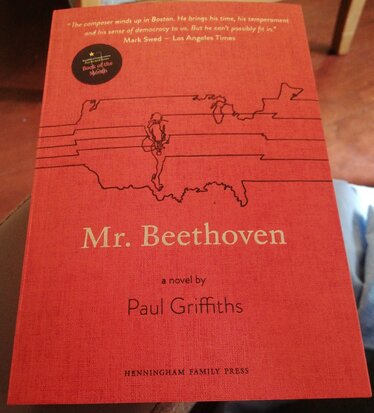
In 1823, Beethoven was commissioned to compose a biblical oratorio in the United States of America. He didn’t live to take up the commission… but what if he had? That’s the question posed by music critic Paul Griffiths in his latest novel.
I like it when historical fiction acknowledges the constructed nature of history. Mr. Beethoven goes much further than that. We begin with Beethoven on a ship headed for Boston – yet Griffiths emphasises that this is not how things were, but a plausible alternative:
It would be possible to work out which vessel this might have been, in whose dining salon these people were delving into their cabbage soup with greater or lesser pleasure. Suppose the year was 1833, as could well have been the case…
In this way, Griffiths is able to take his novel apart and rebuild it as he goes. The sense that this all provisional, contingent, raises the hairs on the back of one’s neck. There’s a brilliant chapter which rehearses a conversation between Beethoven and his librettist, Reverend Ballou, three times. In the first two versions, the composer says the same things but Ballou’s dialogue changes, giving the scene a completely different tone. In the third version, Beethoven doesn’t understand Ballou at all. Which is the ‘correct’ conversation? Take your pick.
Communication is one of the first problems that Beethoven encounters. Griffiths imagines a girl named Thankful, who uses Martha’s Vineyard sign language to interpret for him. But there’s still inevitably a distance between the composer and the world around him. All of Beethoven’s dialogue in the novel has been taken directly from his letters. Of course, it’s then out of context, which has the effect of making Beethoven seem to be at a slight remove from reality. It’s subtle but unnerving.
The subject of Beethoven’s oratorio is Job. As Thankful listens to the performance, she reflects on its meaning: “It is about this universe in which God is omnipotent. And it is about a larger universe in which God is powerless, helpless.” I’m struck that Mr. Beethoven puts its author in a similar position: totally in control over what’s between the covers in one sense, but at the mercy of history in another. If the author is like God, then – as Robert says in his review at The Bobsphere – Beethoven in this novel is like Job, undergoing his own trial of faith (in himself as much as anything).
Mr. Beethoven is a novel that twists language and history to explore what might have been, but also to expose the inherent fragility of any fictional account. I must mention as well that this is a beautifully made volume from Henningham Family Press. I’m pleased to see it highlighted by the Goldsmiths Prize.
Click here to read my other reviews of the 2020 Goldsmiths Prize shortlist.

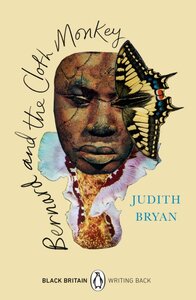
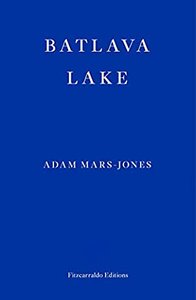


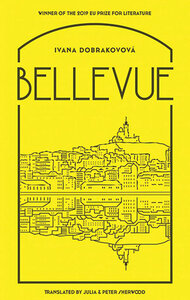
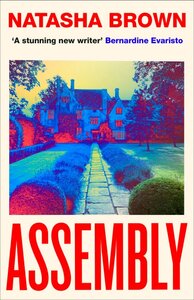


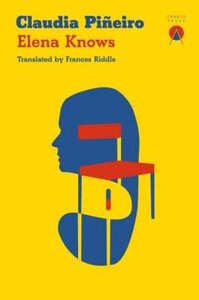
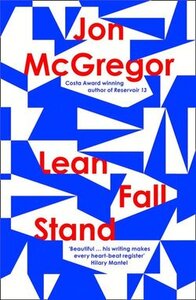
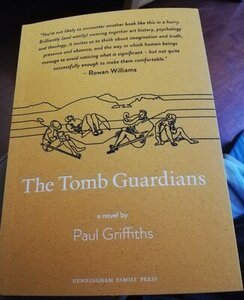
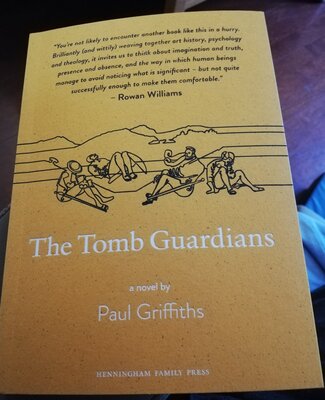
Recent Comments